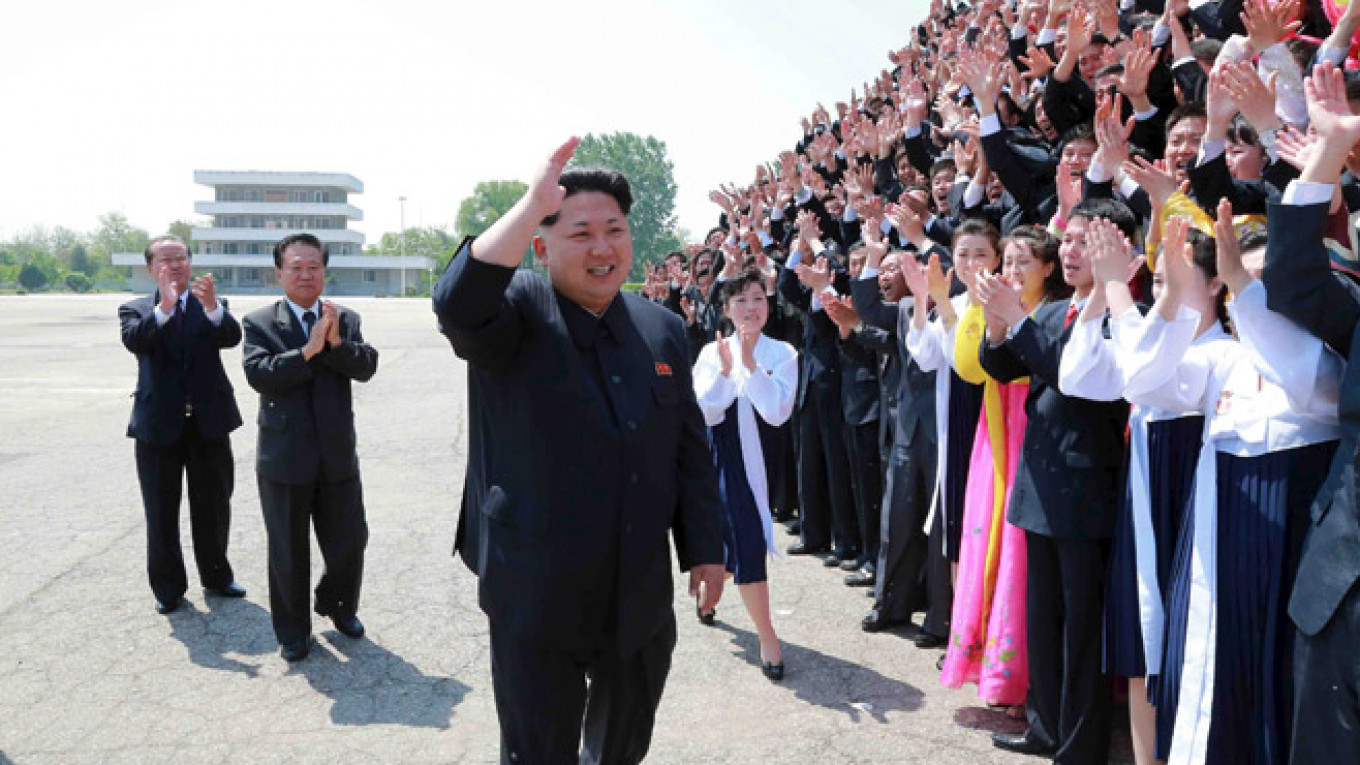As he explained why North Korean leader Kim Jong Un would not be appearing at Moscow's Victory Day celebrations after all, Putin's spokesman Dmitry Peskov alluded to certain "affairs between the Koreas." Many interpreted it as a hint of a potential coup threat — the suggestion was that Kim did not want to leave Pyongyang for too long, fearing that dissatisfied higher-ups might take advantage of his absence to conspire against him.
Still, this version of events does not appear terribly convincing. Such matters are not unprecedented in North Korean history: one attempt against Kim Jong Un's grandfather stands out. In 1956, dissatisfied functionaries attempted an (unsuccessful) plot against Kim Il Sung, right when the great leader was on a trip across eastern Europe.
However, in practice Kim Jong Un should not worry too much about the risk of a coup against him. Officials may express displeasure in private, but they all understand that there is no one to replace him.
Another hypothesis connects Kim Jong Un's change of plans with South Korean President Park Geun-hye's decision not to participate in the Moscow celebrations. It supposes that the real aim of the planned visit was to realize a meeting between the leaders of both Koreas on neutral territory. Park Geun-hye's refusal to travel to Moscow made the former plan impossible to carry out, so Kim Jong Il's visit would have been pointless.
Celebrating May 9 would not exactly be the best context for a meeting of the two Koreas at the highest level, even though the necessity of such a meeting has been growing over a long period. It is difficult to imagine how leaders would manage to meet productively while also having to attend an enormous parade and related festivities.
The North Korean leader has one very curious attribute — he avoids holding meetings with foreign heads of state. Kim Jong Un has held the highest post in the country for three years already, and in that time he has never once met with a single one of his foreign colleagues. In 2013 he even ignored the President of Mongolia after he arrived in Pyongyang for an official visit — one supposes that this was an unusual situation in the annals of diplomatic history.
Russia's position on North Korea's rocket and nuclear programs could have played a role too. Disregarding the noticeable economic cooperation between the two countries, Russia's position on the nuclear question remains firm, and Kim Jong Un would inevitably have run into that hurdle in Moscow.
Why did the discussion over Kim Jong Un's trip to Moscow continue with such intensity for so many months? In all likelihood, only future historians will be able to say with absolute confidence, but it would appear that for some time Kim Jong Un sincerely considered this trip.
After soberly judging and weighing the situation, Kim Jong Un rethought his trip. Kim Jong Un is famous for his impulsive decisions, so there is no need to be surprised by such a turn of events.
How might Kim's decision to cancel the trip influence the relationship between Russia and North Korea? Chances are, not at all. Canceling his visit was, to a certain extent, a slight, but for the most part will not create any serious problems for Russia. One cannot exclude the possibility that Kim Jong Un's appearance at the celebrations might have caused problems for Russia's reputation.
Of course, a certain level of consensus at the highest level would have helped energize current attempts to put economic cooperation between Russia and North Korea on track. These efforts will continue regardless of the push they would have received from the visit, however. Accordingly, it is likely that this would-be visit will remain a minor episode in the history of Russian and North Korean relations.
Andrei Lankov is a historian, specialist in Korean studies and professor at Kookmin University in Seoul. This is an abridged version of a post on Carnegie Moscow's Eurasia Outlook blog.
A Message from The Moscow Times:
Dear readers,
We are facing unprecedented challenges. Russia's Prosecutor General's Office has designated The Moscow Times as an "undesirable" organization, criminalizing our work and putting our staff at risk of prosecution. This follows our earlier unjust labeling as a "foreign agent."
These actions are direct attempts to silence independent journalism in Russia. The authorities claim our work "discredits the decisions of the Russian leadership." We see things differently: we strive to provide accurate, unbiased reporting on Russia.
We, the journalists of The Moscow Times, refuse to be silenced. But to continue our work, we need your help.
Your support, no matter how small, makes a world of difference. If you can, please support us monthly starting from just $2. It's quick to set up, and every contribution makes a significant impact.
By supporting The Moscow Times, you're defending open, independent journalism in the face of repression. Thank you for standing with us.
Remind me later.








